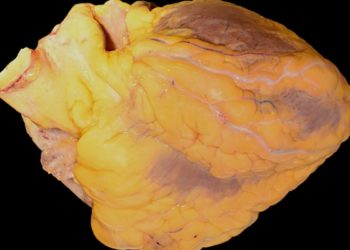Blood pressure variability in early adulthood linked with adverse structural myocardial changes
1. Greater variability in visit-to-visit systolic and diastolic blood pressure readings in early adulthood is associated with adverse myocardial structure changes and impaired systolic and diastolic function.
Evidence Rating: 2 (Good)
Blood pressure (BP) control remains one of the most important modifiable risk factors for cardiovascular health. Variability in BP measurements are commonly observed and clinical practice, and recent literature has suggested that increase in variability is independently associated with greater cardiovascular disease (CVD) risk and heart failure. In this retrospective cohort study, researchers used the data of 2400 patients from the Coronary Artery Risk Development in Young Adults (CARDIA) study to expand upon prior literature and investigate the association between BP variability and myocardial structure. Blood pressure of adults aged 18 to 30 years at baseline was measured over 8 visits over a 25-year interval, and participants received echocardiograms at year 25. Exposures of interest were visit-to-visit variability in systolic (BP) and diastolic BP, and primary outcomes were indices of myocardial structure, systolic function and diastolic function as observed on echocardiogram. In concordance with previous literature, greater visit-to-visit systolic BP variability independent of the mean (VIM) was associated with higher LV mass index (β [SE], 2.66 [0.4]; P < .001), worse diastolic function (é) (β [SE], −0.40 [0.1]; P < .001), higher LV filling pressures (E/é) (β [SE], 0.37 [0.1]; P < .001), and worse global longitudinal strain (β [SE], 0.17 [0.1]; P = .002). Standard deviations of visit-to-visit systolic BP and diastolic BP variability were 8.5, and 7.1, respectively. Similar findings were reported when analyzing variability in DBP, though there were no significant associations between variability in either BP reading with LVEF or left atrial volume. This study represents the first investigation to comprehensively demonstrate an association between long-term BP variability and cardiac remodelling, and adds to a mounting body of evidence that suggests long term BP variability may be a potential important marker for predicting long term cardiovascular health. Using visit-to-visit BP variability as a potential means of identifying at risk patients may pose opportunities for earlier lifestyle or pharmacologic interventions to reduce cardiovascular burden later in life.
Click to read the study in JAMA Cardiology
Image: PD
©2020 2 Minute Medicine, Inc. All rights reserved. No works may be reproduced without expressed written consent from 2 Minute Medicine, Inc. Inquire about licensing here. No article should be construed as medical advice and is not intended as such by the authors or by 2 Minute Medicine, Inc.



![Reinnervation of cardiac infarcts decreases subsequent arrhythmia incidence [PreClinical]](https://www.2minutemedicine.com/wp-content/uploads/2015/02/1280px-Heart_ant_wall_infarction-350x250.jpg)



